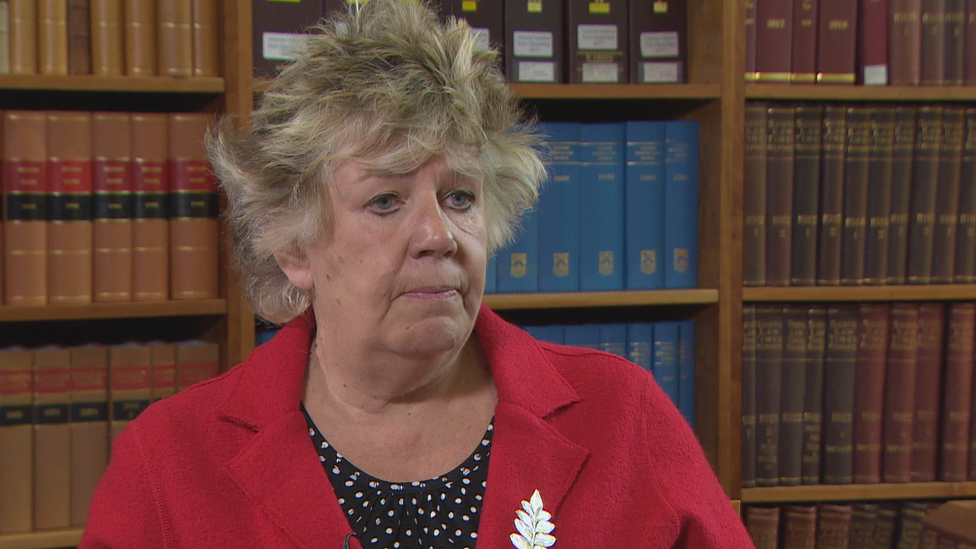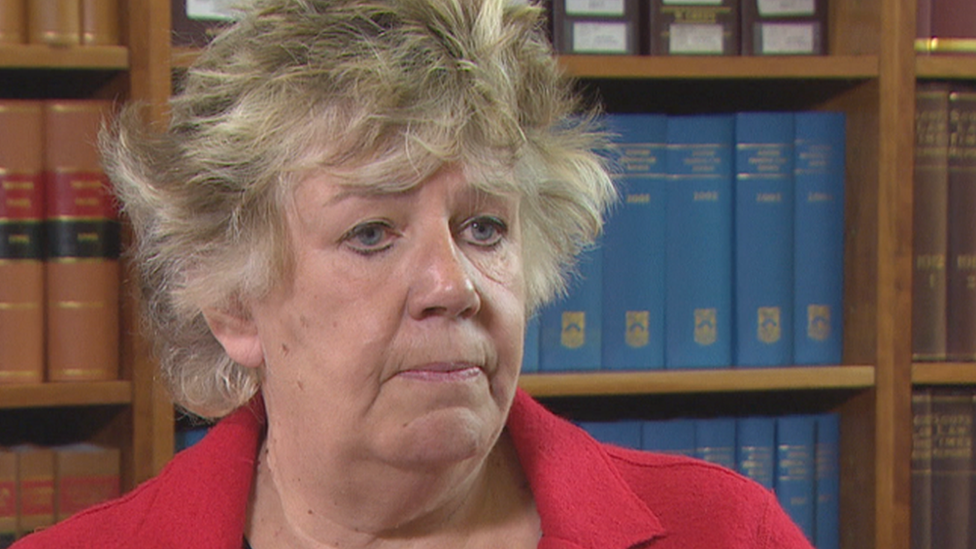'More needs to be done' to explain sentencing
- Published

Research suggests more than half of Scots think sentences are too lenient
More needs to be done to "demystify" the justice system for the public, the body that advises judges and sheriffs on sentencing has said.
Research for the Scottish Sentencing Council found most respondents thought the system was fair but 56% said sentences were too soft.
A majority of people said they felt public protection was the most important purpose of sentencing.
The council said work was being done to improve public understanding.
Lady Dorrian, lord justice clerk and chairwoman of the Scottish Sentencing Council, said: "Developing an understanding of how the public views sentencing, both in general and in relation to those topics on which we are currently developing guidelines, is absolutely crucial.
"While it is positive that most people contacted felt they had a good knowledge of sentencing options, it is clear from the survey that there remains work to be done to demystify sentencing in Scotland.
"This research gives the council some insight into how we can most effectively contribute to improving that public understanding."
Lady Dorrian said the council was working on a set of "clear and concise guidelines" which would help explain how sentencing works to the public.

Lady Dorrian heads up the Scottish Sentencing Council, which helps prepare guidelines to ensure consistent sentencing
The telephone opinion poll, conducted by Ipsos MORI, surveyed 1,000 adults across Scotland between March and April.
The majority of respondents (56%) expressed the view that sentences tend to be too lenient, including 26% who felt they were much too lenient, while just under a third (31%) felt they were about right, and 3% felt they were too tough on average.
This is consistent with much existing research on public attitudes to sentencing.
The survey also found just under two-thirds (63%) stated that they were confident that Scotland's criminal justice system was fair to all, while just over a third (35%) of respondents expressed a lack of confidence in the system.
However, it found a considerable variance depending on the level of formal education of those questioned.
Less than half of respondents (48%) with no formal qualifications had confidence in the justice system's fairness, compared to a 75% confidence rate of those with a university degree.
Community sentences
Moves to restrict the use of short prison sentences will soon see an increase in the number of community-based sentences issued across Scotland but the survey found public opinion divided on their merits.
About half of respondents expressed a view that community sentences do not help reduce reoffending (48%), while four in 10 expressed a view that they were an effective means of reducing rates of reoffending.
Liam Kerr MSP, Scottish Conservative justice spokesman, said the poll results indicated the majority of Scots oppose "soft-touch justice" and called on the Scottish government to drop the plans to create a presumption against prison sentences of less than 12 months.

Justice Secretary Humza Yousaf said reoffending was at its lowest level for 20 years
Justice Secretary Humza Yousaf, however, said the research demonstrated there was public faith in the system.
He said: "The research shows 62% of Scots feel confident in how their criminal justice system deals with people who have committed offences and that most would sentence in a range of example cases in the exactly same way as the courts sentence.
"This government established the Scottish Sentencing Council to strengthen the consistency and public understanding of the range of sentences imposed by the courts.
"Our investment in prevention, enforcement and rehabilitation, both in prisons and in community justice, have contributed to Scotland's reconviction rate falling to its lowest level in 20 years."
- Published16 May 2019

- Published12 June 2019
